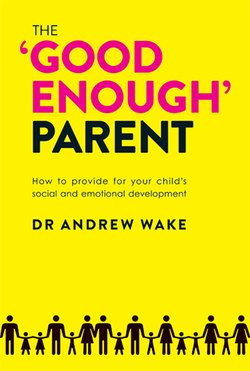Читать книгу The 'Good Enough' Parent - Andrew Wake - Страница 10
На сайте Литреса книга снята с продажи.
ATTACHMENT AND SAFETY
ОглавлениеDuring the nine months of pregnancy, your child was literally attached to his mother. Her body provided everything he needed: he was never cold, hungry or alone, and suffered little discomfort. He was also constantly surrounded by the music of his mother’s heartbeat and voice. This is one of the reasons why singing a lullaby and rhythmic movements such as rocking and walking (especially at 60 to 80 beats per minute, the mother’s heart rate) is so soothing to our children when they get distressed; these hark back to that time of bliss. In fact, to the most ancient part of our brain, anything that mimics the womb can be experienced as very soothing (see ‘Soothing the Reptilian Brain’ on page 74).
When your child was born, this ‘paradise’ was lost: the continuous physical attachment ended and the constant music ceased. For the first time, your baby could feel hungry, tired, cold, lonely and in pain. Of course, he did not have words for his discomfort. All he knew was that he felt awful and he wanted that feeling to go away.
So what did your infant child do when he felt the discomfort of hunger or coldness that this separation had allowed? Did he solve his own problem and fix his own distress? Of course not; he cried. And in crying he was able to make his distress your problem. You responded to his cry by going to him, trying to work out what the problem was, and then doing something to soothe him. You didn’t support him while he sorted his own problem out; you took on the responsibility for solving the problem and saved him from his distress.
This instinctive way of coping with discomfort is very powerful, and is a way of coping that never leaves your child. Though they get older and discover new and more mature ways of dealing with their difficulties, when they feel they cannot manage, and if their distress is high enough, their most basic and automatic way of coping is to do something to make their problem your problem so that you solve it and save them. This is quite understandable and helpful when your child is an infant, as they usually need to be saved; but as they grow it is much less helpful for them to continue to make you responsible for their problems, and to use you instead of themselves to solve their difficulties.
